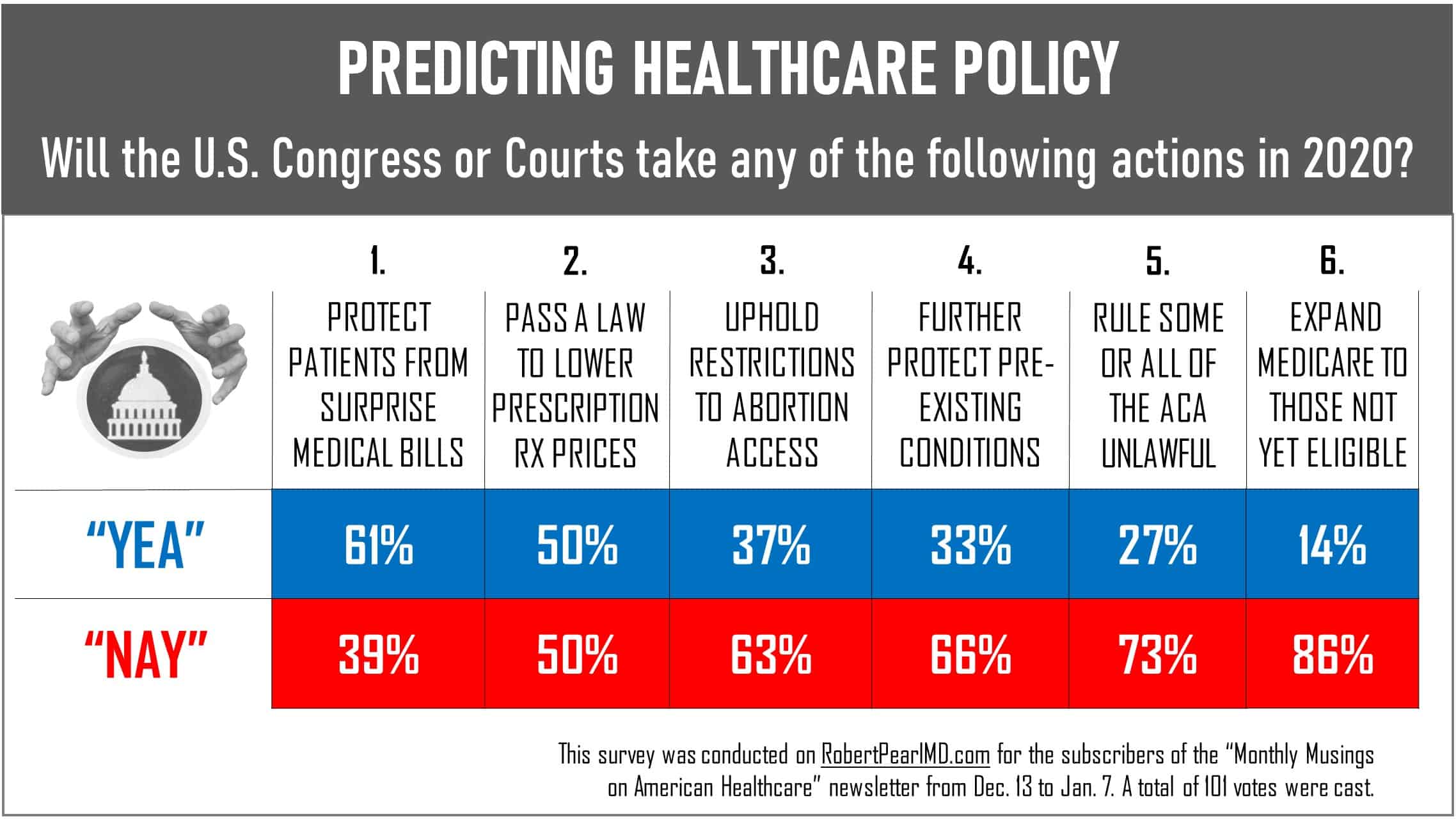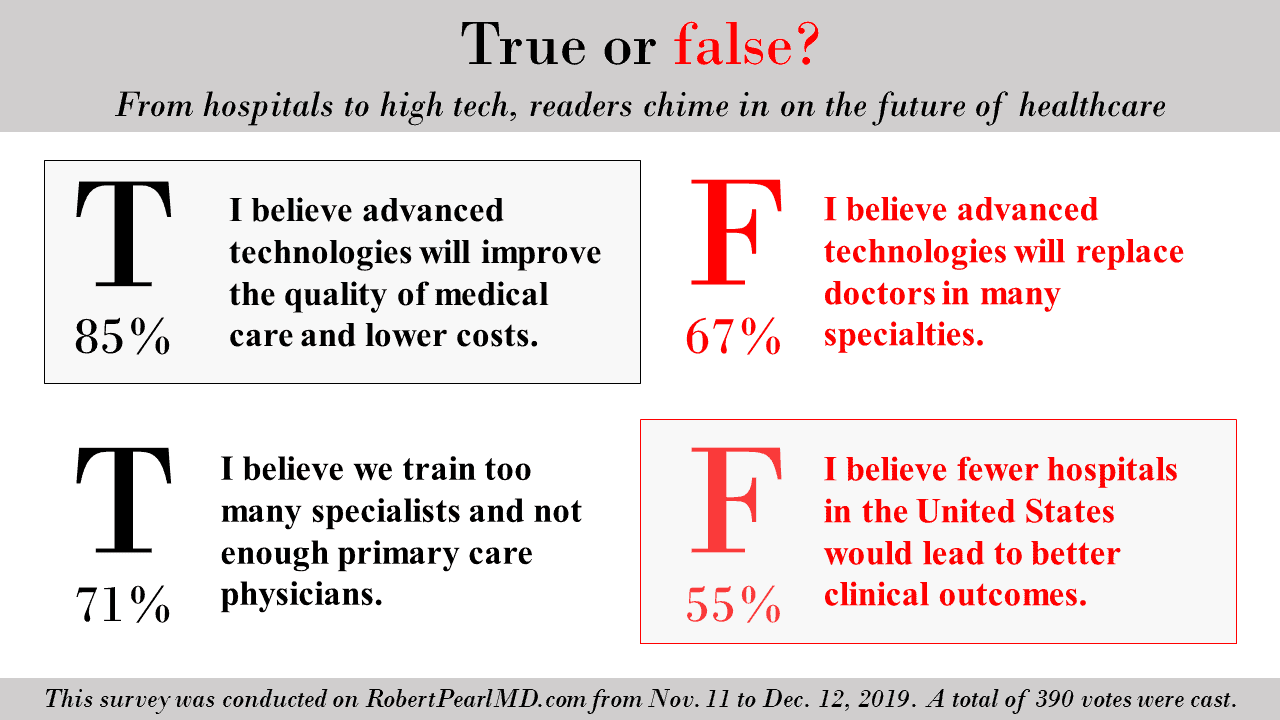With the New Year underway, both Congress and the judiciary are expected to debate a range of crucial healthcare issues. In last month’s reader survey, I asked readers to predict which actions will take place before the end of next year. Here are the full results:

Once again readers are pessimistic that major improvements will come through the legislative process. However, I’m most concerned the courts could intervene in 2020 to restrict patient freedom, whether by deeming some or all of the Affordable Care Act unconstitutional, by approving of healthcare options that fail to protect individuals with pre-existing conditions or restricting women’s right to choose.
Thanks for checking out the results, which are also featured in the January 2020 issue of “Monthly Musings On American Healthcare.” You can sign up for the newsletter here to get the latest surveys, along with up-to-date news and information about the business, politics and culture of medicine.
RESULTS FROM THE NOVEMBER SURVEY
Our most recent monthly survey explored the theme of change in the areas of information technology and U.S. hospitals. Readers were asked to opine on what they believe will be or should be true in the future. Here’s what they said (with analysis below):

The contradictions here are interesting. Nearly all voters believe advanced technology will help doctors deliver better care at lower costs. Yet less than a third believe this technology will replace doctors. Perhaps we’ll call this wishful thinking (which is a nicer term than denial). The majority of survey participants work in healthcare, so it’s no surprise they see themselves as irreplaceable. But the truth is artificial intelligence has already achieved impressive accuracy in the diagnostic fields of radiology and pathology and does the job faster than doctors and at a tiny fraction of the cost. Surely, AI will continue to improve in accuracy and leap even further ahead of humans at analyzing the most complex diagnostic challenges.
As the U.S. population ages, healthcare will become less and less affordable unless something drastic happens to change the course. Primary care physicians have the skill to better care for patients with chronic diseases (and help them avoid complications in the first place). Increasing the percentage of doctors in primary care holds the promise for increasing quality outcomes and flatten the rate of healthcare cost inflation. By doing so, we will be able to take care of a larger population with fewer hospitals in the years to come.
* * *
Dr. Robert Pearl is the former CEO of The Permanente Medical Group, the nation’s largest physician group. He’s the bestselling author of “Mistreated: Why We Think We’re Getting Good Health Care–And Why We’re Usually Wrong” and a Stanford University professor. Follow him on Twitter @RobertPearlMD.






